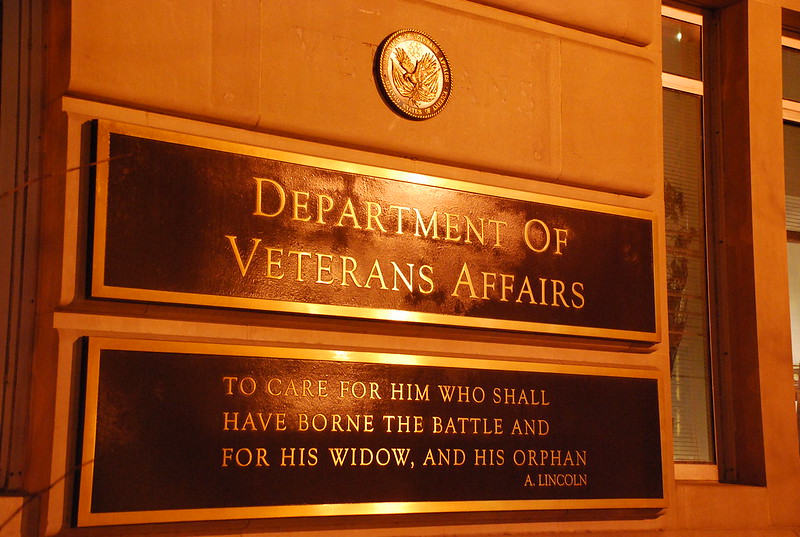WASHINGTON — As their first move in the new presidential administration, Republican top brass on the Senate and House Veterans’ Affairs Committees introduced a bill last week loosening the threshold for veterans to access private care.
On paper, the Veterans’ ACCESS Act appears to show signs of the conservative policy blueprint Project 2025, which President Donald Trump has recently aligned himself with in his wave of executive orders. The 900-page report centers on the downsizing of multiple federal agencies, including policy suggestions that would impact the VA.
“There does seem an interest in really removing barriers to private sector care as part of that,” said Carrie Farmer, co-director of the RAND Epstein Family Veterans Policy Research Institute. “Whether or not that becomes a policy priority for the administration, I think we’ll need to wait and see.”
Notably, the bill may offer a privy window into the GOP’s desire to steer funds and resources away from federal veteran care to the private sector.
But the ongoing struggle is nothing new.
Over the years, the VA agency has become a political hot button over complaints of long wait times, inadequate mental health care services and staffing shortages. Indeed, Republicans have had ample fodder to warrant overhauling the VA’s $300 billion budget.
In 2018, the Trump administration passed the Mission Act that codified the Community Care Network, enabling veterans to access services outside of federal care providers.
Each year, more and more veterans have relied on the program. Today, the Community Care program delivers health care to over 2.8 million veterans.
At first glance, the ACCESS Act appears to expand on approaches taken with the Mission Act. Key provisions from the bill include restructuring veterans’ eligibility requirements for community care and instituting education programs and mental health treatment programs for veterans.
One provision of the ACCESS Act provides veterans the choice to seek in-person community care, despite telehealth treatment, a common fallback for veterans who live in remote areas, already being an option.
Many Republicans from rural states have railed against the VA’s offering of fewer in-person options there — even when the number of private options remains limited.
A caveat of the bill, however, seems to lie in the launching of a new pilot program.
Per Section 302, the bill will direct a three-year pilot program to allow enrolled veterans to access private mental health treatment and substance use services through the community care network — without requiring a referral or preauthorization. Participants would be outside of the VA’s care jurisdiction for those care options.
The pilot, the bill says, is based on TRICARE Prime. Unlike VA Care, TRICARE Prime mainly deals with active duty service members and their families and is managed by the Department of Defense.
Experts suggest that this provision could portend the possibility of a moot VA.
“It is changing the VA primarily into an insurance carrier and paying for care that does not have to be authorized or pre-authorized by the VA,” said Russell Lemle, a senior policy advisor for the Veterans Healthcare Policy Institute.
At a Senate Veterans’ Affairs Committee meeting in January, Republican lawmakers touted the new bill as a blanket solution for the VA.
“The VA health care system is an invaluable resource for veterans, but it will only remain so if it stops failing those who need it the most,” said Sen. Jerry Moran (R-Kan.), the Senate Veterans’ Affair Committee chairman.
Aside from the ACCESS Act, Republicans have offered little foresight into their plans for the VA. Doug Collins, Trump’s recently confirmed Secretary of Veterans Affairs, rejected any efforts to privatize the VA during his confirmation hearing.
“I believe you can have both, you can have a strong VA as it currently exists and you can have the community care aspect,” Collins said.
Some of Collins’ other priorities, he told senators, were shedding department staff and bringing employees back to work in the office.
On Monday, the VA announced its return to in-person work policy, following Trump’s presidential memorandum. Given Collins’ inexperience in working in the VA, it is still unclear what his policies might entail under the new administration.
While Republicans have historically chipped away at the VA, Democrats have remained steadfast in their approach: the VA and private sector must work together.
“Wait times for community care might sometimes be longer in some instances,” said Sen. Richard Blumenthal (D-Conn.). “The two systems have to be complementary, not competitive.”

